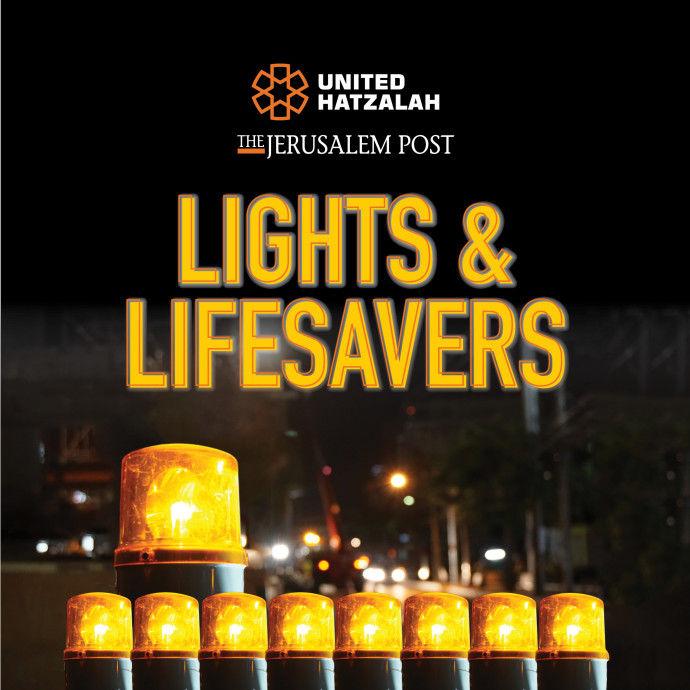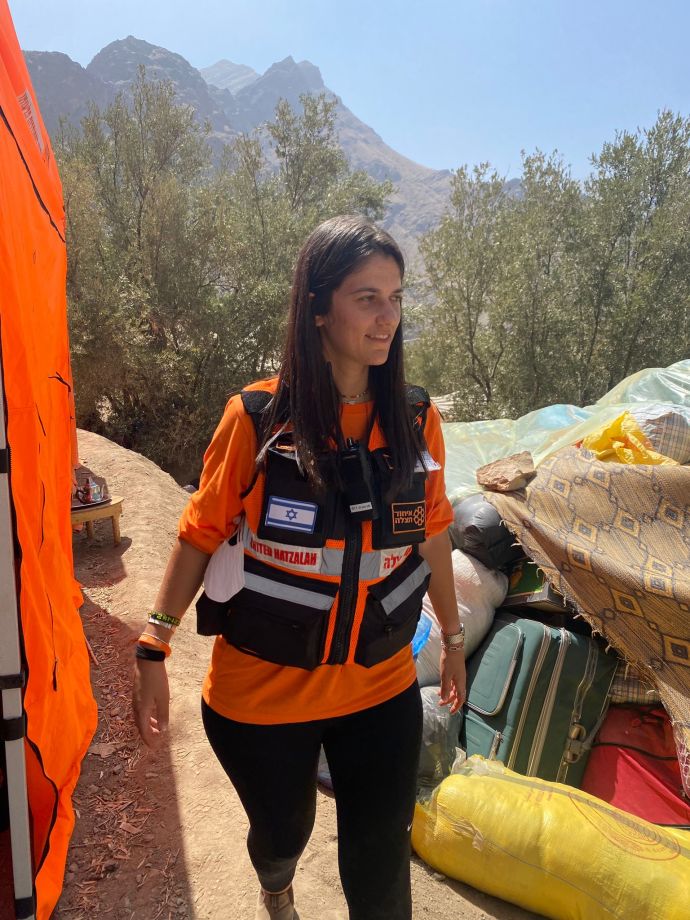In September, exactly a month before Hamas carried out a massacre in southern Israel, a powerful earthquake struck Morocco, killing thousands of people and destroying entire regions.
“It was a Saturday, and I was visiting friends who do not keep Shabbat and had their TV on,” said United Hatzalah volunteer Noemie Dray, 27, from Modi’in. “I saw the images of the earthquake on the screen.”
“Later, I asked the paramedic in charge of my district if Hatzalah was going to send a delegation,” she said.

Dray, 27, made aliyah from France when she was a child. She is currently studying nursing.
“They were looking for people who spoke Arabic or French and carried a foreign passport,” she said. “Therefore, I was eligible to go. I am also trained to assist people as a resilience coordinator, which was an advantage. I signed up.”
On September 13, the delegation flew out and spent nine days in Morocco, including Rosh Hashanah.

“We operated a field clinic, traveling every day to a new village or area, and we took care of the wounded,” Dray said. “The need was great.”
Asked about how people reacted to them as Israelis, Dray said people expressed a lot of appreciation.
“We did not have any perception of something funny or negative,” she said. “Quite the opposite – people were very grateful. We had entire villages coming out to thank us.”
Two weeks after the delegation returned, it was October 7.
“I keep Shabbat, so I do not usually use technology on Saturday,” Dray said. “But as a Hatzalah volunteer, both a medic and a coordinator in the Resilience Unit, I am available on the phone. I started to see missile alarms and was then getting updates about what was happening in the South.”
Soon, the head of the local branch of United Hatzalah asked everyone to be on high alert.
“A few minutes later, our regional paramedic said he was sending an ambulance down south and asked who was ready to staff it,” she said. “I had no idea what to expect, but I immediately volunteered. At 9 a.m. we were on our way.”
Dray described the scene of a full war zone, burnt cars, bodies, sirens going off, and missiles falling in the fields around them.
The ambulance soon began to evacuate wounded soldiers and civilians from the Gaza border communities.
“Every time we finished one trip, we immediately prepared the ambulance for the next one and went back,” she said. “I remember there was one patient who we needed to put on a ventilator.
As I was doing it, I instinctively caressed his head. He asked me to hold his hand, and so I did until we got to the hospital.”
Dray took all the names of the people they treated.
“It felt important,” she said. “Days later, I managed to find and visit two of them. They were doing much better.”
On October 7, there was no time to think about what was happening, Dray said.
“We just worked all day, most professionally, doing everything we needed to do,” she said. “There was no time for anything else.”
“United Hatzalah is really like a family,” Dray said. “Every day, it saves lives.”
The Jerusalem Post is proud to partner with United Hatzalah on the Lights and Lifesavers project to honor the October 7 massacre Heroes of Hanukkah. To support the country’s first responders, visit www.jpost.com/lifesavers2023

